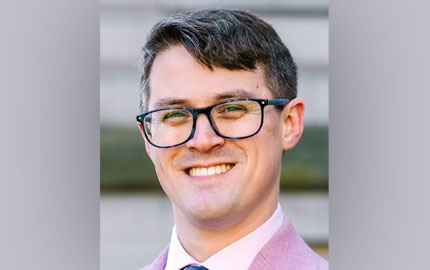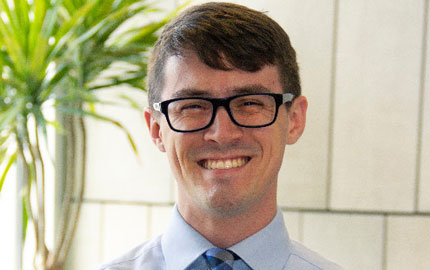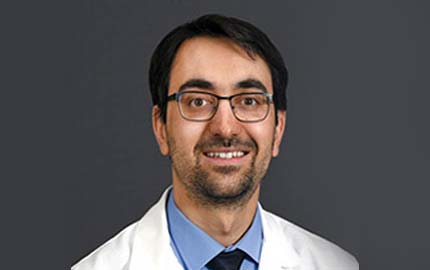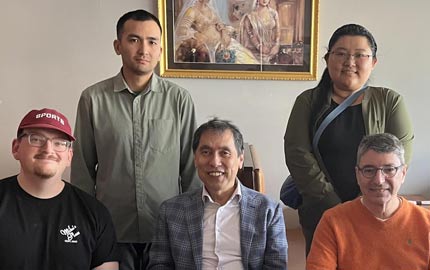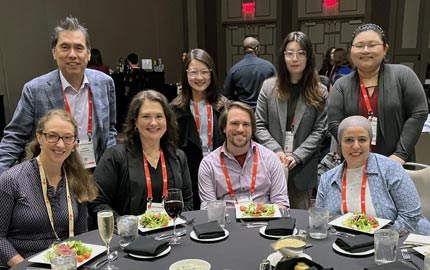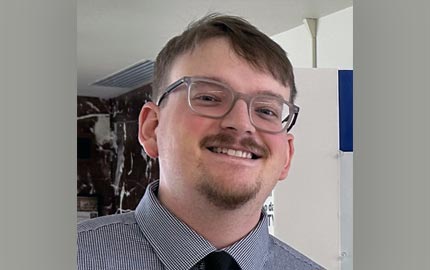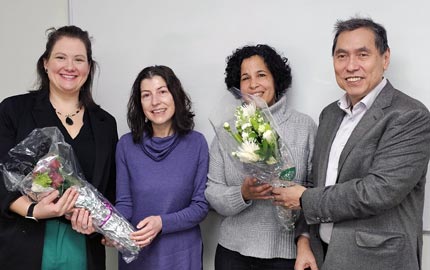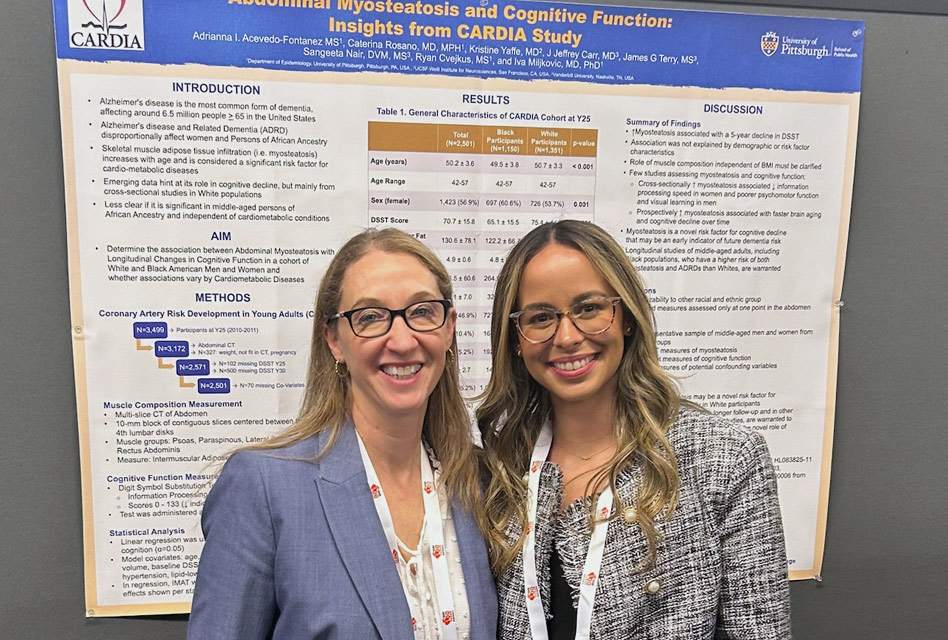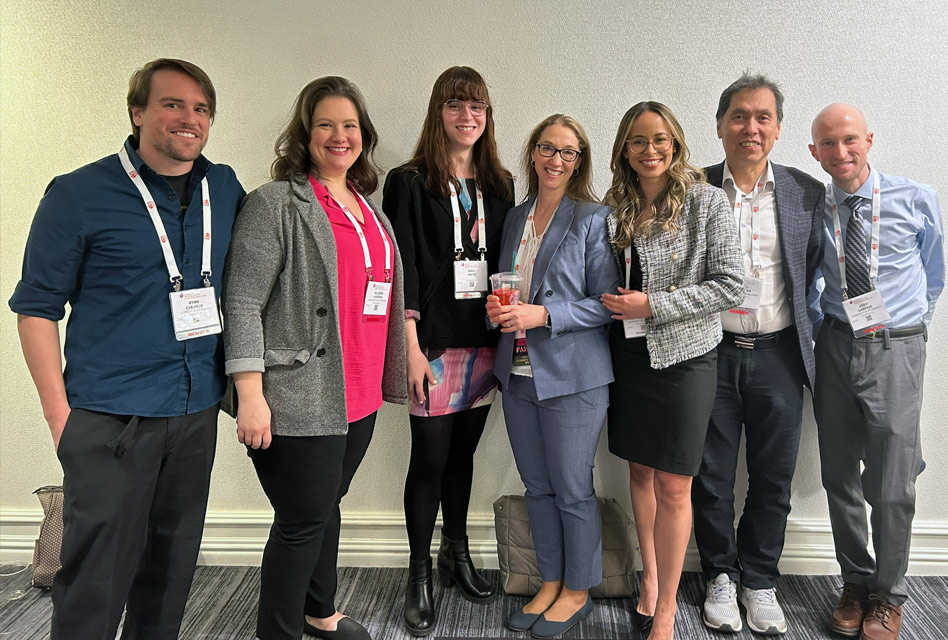Celebrating Dr. Andrea Kozai’s Completion of T32 Fellowship at the CVD Workshop
Andrea Kozai completes her T32 postdoctoral fellowship; we celebrated her achievements at the Dec 3 2025 CVD Workshop.
Alum Awarded Pilot Grant
Dr. Curtis Tilves was awarded a pilot grant from the Colorado Nutrition Obesity Research Center!
Alum Receives AHA Career Development Award
Dr. Curtis Tilves, Research Associate in the Dept of Epidemiology/LEAD Center, University of Colorado receives AHA Career Development Award!
Post-doc Trainee Accepted into US Ten-Day Seminar on the Epidemiology and Prevention
Murat Sari, MD, was accepted into U.S. Ten-Day Seminar on the Epidemiology and Prevention of Cardiovascular Diseases and Stroke.
Alum Receives Award from the University of Iowa Office of the Vice President for Research
Yamnia I. Cortés, Associate Professor in the University of Iowa College of Nursing, received the Faculty Communicating Ideas Award!
Lunch Meeting with Professor Panagiotis (Takis) Benos
Professor Panagiotis (Takis) Benos returns to Pitt for a visit!
American Heart Association Epi Lifestyle Scientific Sessions 2025
Another successful CVD Epi Training Program showing at in New Orleans!
New CV Epi Training Grant Trainee: Ian Jacobs
Introducing our new CV Epi Training Grant Trainee
Patterns of PA, sedentary behavior, and sleep across pregnancy before/during the COVID pandemic
Andrea Kozai, postdoctoral trainee, compared activity patterns in pregnancy between pre-COVID and COVID-era cohorts in a new publication.
Celebrating Leadership Changes
Welcoming Dr. Tina Costacou as New Co-Director, Celebrating Dr. Emma Barinas-Mitchell’s Retirement, and Dr. Allison Kuipers’ New Chapter
The CVD Epidemiology Training Program’s philosophy is to provide a core foundation of didactic training in Cardiovascular Epidemiology with strong methodological and quantitative skills, customized to the experience and background of each trainee.
The Training Program is organized around three research cores: 1) subclinical atherosclerosis, 2) biostatistics/epidemiological methods and 3) cardiology grounded in six areas of strength ((i) vascular aging, (ii) women’s health, (iii) high risk & international populations, (iv) nutrition & environment, (v) physical activity and (vi) psychosocial factors. To address novel opportunities in epidemiological research, our Program incorporates experiences for trainees in using Big Data, electronic health record, omics and mobile health for which we have rich faculty expertise.
Under the leadership of Dr. Akira Sekikawa, and the program Co-Director, Dr. Tina Costacou, this program is designed to provide concentrated training in the quality collection of subclinical vascular measures, biomarkers, and CVD outcomes data and how they can be used to understand the process of atherosclerosis and CVD.
Building on more than a decade of success, we are enhancing our existing training program by expanding to include Big Data, mobile Health (mHealth) and Cross-Cohort Collaboration. Doing so will position our trainees to be independent cardiovascular epidemiologists in multidisciplinary research settings competent in traditional and novel epidemiological methods in CVD.
The Training Program includes 4 pre-doctoral and 2 post- doctoral positions in epidemiology. Post-doctoral trainees are individuals with a PhD or MD. The training program consists of course work, research field work and professional development, all individually tailored to each trainee.
Curriculum
Key Components and Requirements of CVD Epidemiology T32 Program
Why Become a Trainee?
One is that I was involved in doing real, substantial research, from my first week. While course-work is important, the best learning experiences have been hands-on research with mentoring from my advisor, faculty, and more advanced students.
– NN
I believe the professors foster this readiness to openly communicate ideas and thoughts. The degree of collaboration between groups within the GSPH and outside of the university is also readily shown.
– KS
The camaraderie of students in the program is undeniable, and research opportunities often materialize out of a spontaneous conversation with a professor or fellow trainee.
– AA
I also enjoy the spirit of collaboration between postdocs, predocs, and faculty members here. I appreciate the effective mentoring of the more advanced students and faculty members in the program.
– JN
As a new trainee on the Cardiovascular Training Grant, I was immediately impressed with the organization, enthusiasm and support of the faculty, staff, and fellow trainees. The high facultyto-student ratio allows for a personalized program that compliments my background and supports my interests.
– JW
AHA Epidemiology and Prevention | Lifestyle and Cardiometabolic Health
March 18-21, 2024, Chicago, IL
Latest News
Celebrating Dr. Andrea Kozai’s Completion of T32 Fellowship at the CVD Workshop
Andrea Kozai completes her T32 postdoctoral fellowship; we celebrated her achievements at the Dec 3 2025 CVD Workshop.
Alum Awarded Pilot Grant
Dr. Curtis Tilves was awarded a pilot grant from the Colorado Nutrition Obesity Research Center!
Alum Receives AHA Career Development Award
Dr. Curtis Tilves, Research Associate in the Dept of Epidemiology/LEAD Center, University of Colorado receives AHA Career Development Award!





